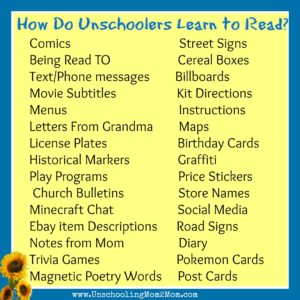This is a pretty common question, not only among Unschoolers, but parents in general. There are a lot of reasons our children watch YouTube or Twitch. For something like watching other kids play with toys, unboxing, or game play ~ it’s often about better understanding the product. Sometimes that doesn’t directly translate to the same product in your home, but they still “file away” that information for later.
I kind of equate it to something like Pinterest. I may “pin” or save ideas or pictures. Am I going to turn my under-the-stairs-closet into a home library/reading nook? Probably not. However it spurred ideas about creating a nesting spot elsewhere in my house. OR I love what someone did and I can appreciate the aesthetic while simultaneously acknowledging that I’m never going to spend $50K on a “she shed”.
Our kids have been regularly perusing YouTube for 10 years now. Especially when they were younger ~ I sat down with them. I’d ask them, “Why are you watching this?” Not in a judgy way, but to learn what they were getting out of it. “What do you think about this product?” “Why do you like this reviewer?” Sometimes they were seeing something completely different than I was. We talk a lot about marketing, commercials, paid endorsements, etc. Both kids (15yo & 16yo at the time of this post) are actually fairly savvy consumers, thoroughly check ratings/reviews, shop the best deals, etc.
Also, even if a YouTuber or a product don’t interest me ~ I appreciate it for their interest. Sort of like how I watch Tennis or Football or Car Shows with my husband. Are those things that I’d prioritize to watch on my own? No. But I love him so I enjoy getting to know the things he loves better.
Now that they are older and I’m not always right by their side, it’s interesting to see the amazing things they discover merely browsing on YouTube. Just the other day our son (16yo) brought up an art restorer he’s been following. So we, along with his sister, spent an hour watching Baumgartner Restoration.
We had a lot of great conversations about art, history, colors, chemicals, and patience. (Because WOW, does restoration require a lot of patience and meticulous detail work.)
Any time you don’t see the value in something that your children spend a lot of their time engaged in, I encourage you to find a way to truly observe what it brings to their life.
-Rachel
Learn more about Rachel on our Contributors page.





